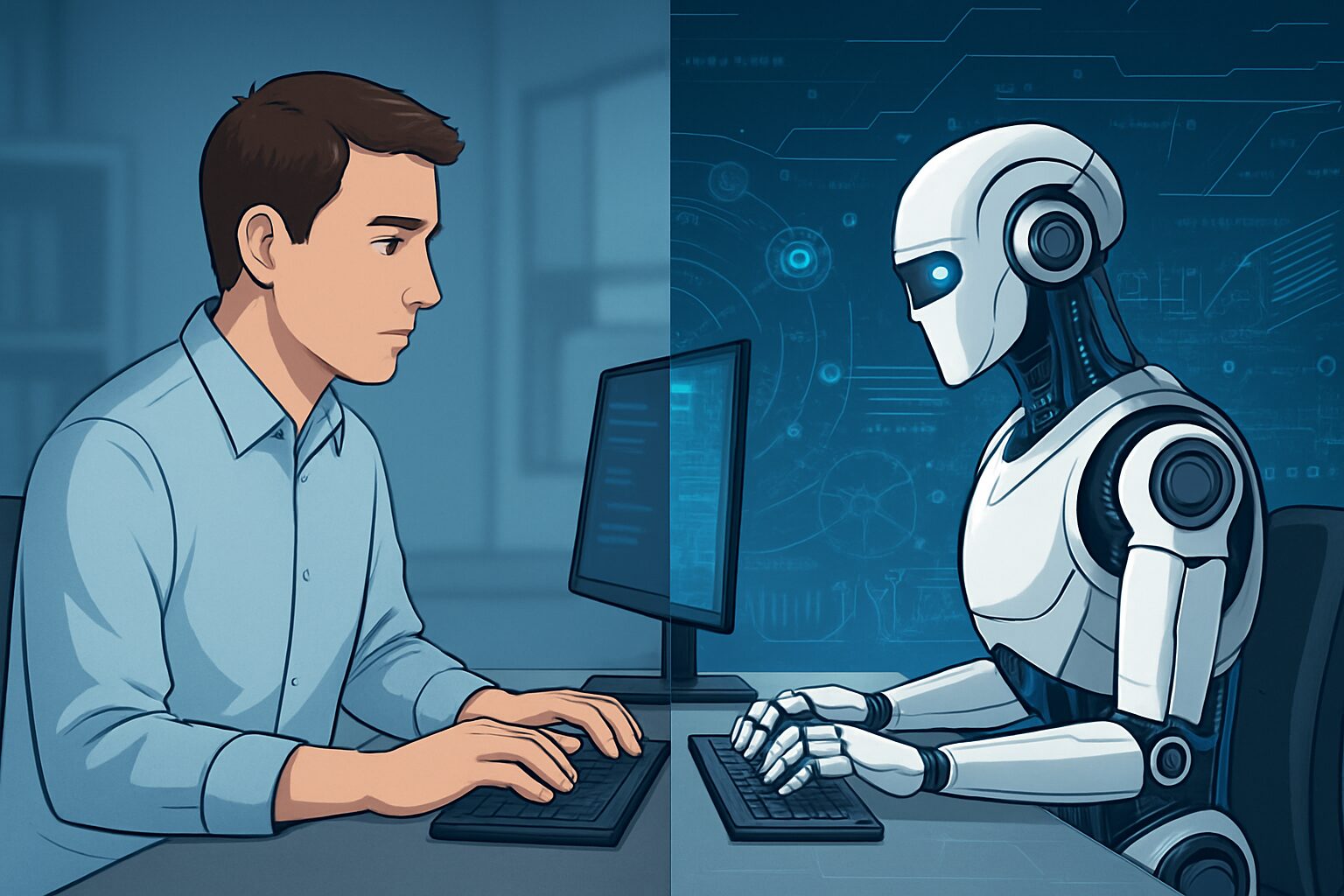The emergence of artificial intelligence isn’t something in the future – today, it’s here. From robots used for customer service to AI design software, automation is sneaking into our workplaces and changing our jobs. The reality check? Some jobs won’t survive the decade. Thinking if AI will replace these jobs by 2030? The reality might hit a little closer to home than you realize.
Why AI Is Making Progress
Let’s be real: AI does not get fatigued, AI does not get bored, and AI does not ask for a pay raise. For businesses, that’s a fantasy. For workers in repetitive or data-focused work, it’s an alarm call. Applications like machine learning and natural language processing are getting smart enough to do work previously requiring human touch.
Now, let’s break down the 10 most at-risk jobs—and what you can do about it.
1. Data Entry Clerks
Data entry was once the backbone of administrative work. But today, AI software can extract, sort, and enter data faster—and with fewer errors. Optical character recognition (OCR) and RPA (robotic process automation) already are automating this job out of human hands.
What to do: Upskill in data analysis or management, where interpretation is still paramount.
2. Telemarketers
You may have already talked to an AI telemarketer without even knowing it. Voice bots are improving at sounding human—and they’re much cheaper.
What to do: Move into customer success or relationship – selling, which involve empathy and strategy.
3. Cashiers
With self-checkout kiosks, contactless payments, and Amazon’s “Just Walk Out” tech, cashier jobs are disappearing fast. Large retailers are spending big money on cashier-less stores.
What to do: Inventory control or in-shop experience jobs still needing an infusion of humanity.
4. Travel Agents
Why call a travel agent when you can plan the entire trip using an app? AI elements like chatbots and recommender systems run it all, from flights to booking accommodations.
What to do: High-end, corporate, or adventure travel planning—industries needing human examination and customization.
5. Legal Assistants and Paralegals
Artificial intelligence software like ChatGPT (ahem, like mine!) and DoNotPay can draft legal letters, review contracts, and even contest parking tickets. AI is being used by law firms to cut billable hours on routine work.
What to do: Legal strategy, client counseling, or ethics compliance—tasks where judgment is paramount.
6. Factory Workers (Assembly Line)
Automation has been transforming factories for decades, but AI-powered robots are speeding up the process. The robots can “see” and “feel” now—replacing humans on a massive scale.
What to do: Learn how to use and maintain the very robots on the cusp of overwhelming the floor.
7. Graphic Designers (Entry-Level)
Software like Canva, Adobe Firefly, and Midjourney can now create logos, social media graphics, and even entire ad campaigns with a few clicks. Basic design work is being automated.
What to do: Focus on brand strategy, UX design, or creative direction—areas where vision and storytelling are essential.
8. Customer Support Representatives
AI-driven chatbots are now available 24/7 and can handle most of the customer inquiries. Zendesk and Intercom are already utilizing bots as the first point of interaction.
What to do: Shift to customer experience strategy or product feedback loops—areas that bots fall short of.
9. Journalists (Routine News Reporting)
AI is writing sports recaps, stock reports, and even weather summaries. Newsrooms are using automation to produce high volumes.
What to do: Dive into investigative reporting, feature writing, or multimedia journalism where creativity is needed.
10. Accountants (Basic Bookkeeping)
QuickBooks and Xero software now use AI to auto-track expenses, payrolls, and tax reporting. The need for conventional bookkeepers is dwindling.
What to do: Move into financial advising or auditing, which require more insight and trust.
How to Stay Ahead of AI
Let’s be clear: not all jobs will disappear—but they’ll change. The secret is learning to work alongside AI, not against it. Here’s how you can future-proof your career:
- Embrace lifelong learning: Stay current with new tools and platforms in your industry.
- Highlight soft skills: Empathy, flexibility, and creativity are only human.
- Get tech smarts: Learn the basics of AI, data analysis, or project management.
- Be indispensable: Build a reputation as a critical thinker, problem solver, and team leader.
Final Thoughts
Yes, AI will make these jobs obsolete by 2030—but it won’t make people who evolve obsolete. If your job is on the list, don’t panic. Start planning. Start learning. And most importantly, start thinking about how you can be relevant in a world where machines are getting smarter every day.
Want to Learn More?
Curious about how AI is shaping the future of work?
- Take a look at our [Tech] section to explore how automation is changing industries.
- Visit [Life] for practical tips on career growth, upskilling, and navigating an AI-driven job market.
If you’re ready for a deep dive, check out the [World Economic Forum’s Future of Jobs Report]. It lays out which roles are growing, which are fading, and the top skills you’ll need over the next few years.




1 thought on “These 10 Jobs Will Be Replaced by AI by 2030”